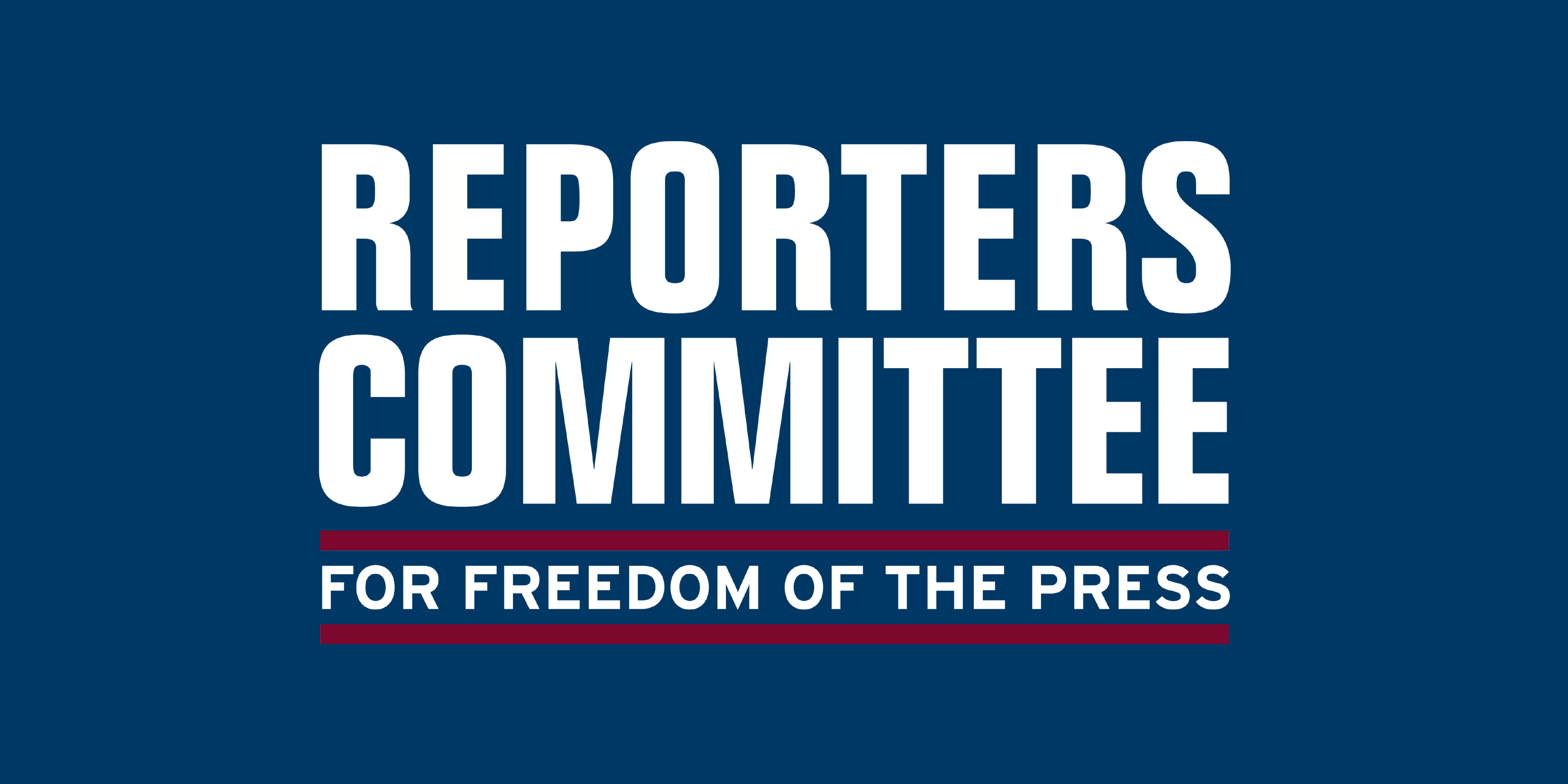On the Docket: A guide to RCFP’s legal guides for journalists

This column was originally published in the November 2023 issue of The Tennessee Press, the official publication of the Tennessee Press Association.
I’ve said this before in a previous column, but it bears repeating: In a perfect world, every journalist would have access to an attorney to help overcome legal issues and pave the way for important reporting in the public interest. Unfortunately, many journalists don’t always have an attorney to turn to when they need to challenge a public records rejection or fight back against a subpoena demanding their notes.
As many of you know by now, the Reporters Committee for Freedom of the Press hired me nearly four years ago to help fill that void for journalists here in Tennessee. Since then, I’ve successfully represented local journalists and news organizations in a number of public records and open meetings lawsuits, and I’ve helped journalists navigate legal issues through the Reporters Committee’s free Legal Hotline.

But I obviously can’t take on every legal battle that comes my way. In those situations, I always try to direct journalists to resources that can help them overcome legal roadblocks on their own — and in most cases, those resources can be found on the Reporters Committee’s website. Over the years, the Reporters Committee has compiled many guides that cover legal issues journalists regularly confront in their work.
In past columns for this newsletter, I have briefly mentioned a few of these resources, including our Guide to Pre-Publication Review, which provides helpful tips for vetting your story before you publish, and the Open Courts Compendium, which guides reporters through a wide range of court access issues. In this column, I want to go a bit deeper on some of our most popular guides, and tell you what you can expect to find when you (hopefully) check them out. Consider it a guide to the Reporters Committee’s legal guides.
Open Government Guide
What kinds of records are exempt from disclosure in Tennessee? When are public bodies allowed to meet behind closed doors? These frequently asked questions and many more are answered in the Reporters Committee’s Open Government Guide, a comprehensive collection of information on every state’s open records and open meetings laws.
Our Tennessee chapter tells you everything you need to know about the state’s Public Records Act and Open Meetings Law. The guide’s “compare” feature allows you to find out how provisions of Tennessee’s laws stack up against those in other states.
FOIA Wiki
If you’re looking for information on the federal Freedom of Information Act, the Reporters Committee created a separate FOIA Wiki that covers the federal government. This resource teaches you everything from how to submit a FOIA request to how to file an administrative appeal. It also breaks down all nine exemptions that allow federal agencies to withhold certain categories of records.
Familiarizing yourself with both the Open Government Guide and the FOIA Wiki will significantly increase your understanding of public records laws at the state and federal level.
Reporter’s Recording Guide
Can I record this interview? It’s a question you’ve probably asked yourself many times before while reporting a story. The Reporters Committee’s Recording Guide provides information on the ins and outs of the recording laws and hidden camera laws in each state.
The guide tells you about Tennessee’s status as a one-party consent state and addresses whether courts in Tennessee have recognized the right to record government officials engaged in their official duties in public places. It also provides information about the criminal and civil penalties that could result from violating the law.
Reporter’s Privilege Compendium
The Reporter’s Privilege Compendium provides detailed information about journalists’ right not to be compelled to testify or disclose sources and information in court. Our Tennessee chapter tells you all about the state’s shield law and the qualified right it offers journalists to protect their sources and newsgathering materials in civil and criminal cases.
In addition to learning the basics of the shield law, you can find out the standard of proof required for a party seeking to enforce a subpoena against a journalist and how you can challenge one if you ever get served.
Police, Protesters and the Press
Covering protests comes with a lot of risks. During the chaos and confusion of demonstrations, reporters sometimes face physical assaults and arrests. Police, Protesters and the Press is a Reporters Committee guide intended to help journalists understand their rights at protests and avoid arrest while covering these events. This guide includes information about your rights under the First and Fourth Amendments, as well as the Privacy Protection Act. It’s a must-read for any journalist preparing to cover a protest.
These are just a few of the resources the Reporters Committee offers to journalists (for free) on our website. You can find the rest of them at rcfp.org/resources. I recommend bookmarking these guides for easy access. If you’re like many of the reporters I know who have already consulted these resources, you’ll probably revisit them often.
Paul McAdoo is the Tennessee Local Legal Initiative attorney for the Reporters Committee for Freedom of the Press. He is based in Nashville.